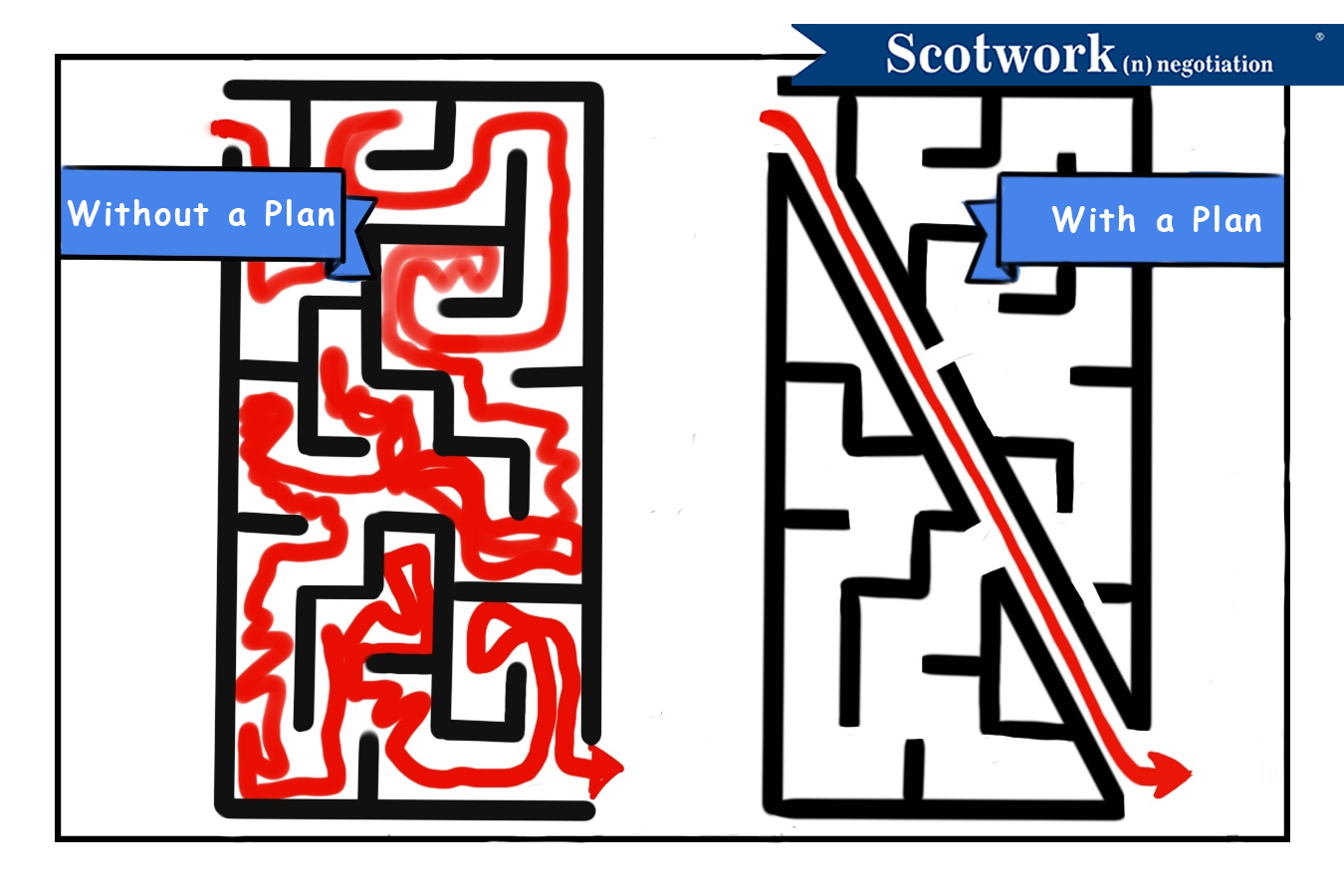Whether you’re a parent or not, I’m sure you’ve been listening to the great debate on how to reopen schools. Many colleges and universities have announced plans to offer most classes online this fall, with a limited number of students on campus. My daughters’ schools are offering options from blended learning (two hours a day on campus with the rest at home) to complete distance learning. As with everything during the “new normal,” those plans continue to change and evolve, leaving many families struggling to plan. This situation is analogous to how we’re trying to prepare within our businesses as we deal with the ramifications of COVID-19. No matter the struggle and uncertainty, there’s a way to plan to help you through almost any situation.
A negotiator creating a plan is part historian, part investigator, and part improv actor. When these roles work together, they can help any dealmaker have a successful negotiation.
Historian
The historian reflects on previous negotiations. It’s important to look back on all previous negotiations, so that you can learn the tendencies and patterns of the party you’re negotiating with. Do they build a lot of fluff into their proposals? Will they always ask for a discount? Do they sweat the small stuff? Knowing the other party can help you prepare a strategy that will resonate with the other side.
The historian also studies the previous deals. They identify the major sticking points as well as the areas that seemed to be of lesser importance. They examine the deal through the lens of today in order to understand if the deals worked out as intended. In the end, the historian develops a perspective that will inform and guide the upcoming deal.
Investigator
The investigator is curious, probing the “why” of the blended past and present circumstances — going through a series of questions to explore what’s happening both above and below the surface of the negotiating table. These questions include:
- Why are we negotiating?
- Why did they (or we) initiate the negotiation?
- Why are we doing this now?
- Why is this important (or not important) to them (and us)?
- Why are they making those demands?
They’re looking to see if they can uncover hidden agendas, find sources of power and leverage, and search for the meaning behind what’s happening. The investigator can take the historian’s perspective and uncover the motives and needs for the upcoming negotiation.
Improv Actor
The improv actor is all about the possibilities. Their job is to embrace the cardinal rule of improv: “Yes and . . .” An improv actor is taught to take a situation and expand on it. When asked a question, they do not say “no” — they say “yes” and explore what’s possible.
This is probably one of the most difficult roles to play, because the improv actor must be ready for all of the unknowns. To do that, they must first plan for the most likely scenarios — the ones that they anticipate will happen. From there, they go a step further and start thinking about everything from less likely scenarios all the way to “no way this will happen” scenarios. Basically going from most probable to least probable.
With each of these scenarios, they start to plan out their response, finding ways to react that will work to their advantage and aid the flow of negotiation. The reality is that they will rarely think of everything, but because they put the work in on all of the scenarios they could imagine, they’re in a better position to respond to something that they didn’t imagine.
When you incorporate all of these roles into your negotiation preparation, you’ll find a strategy that will guide you through most situations you’re likely to face. That strategy will ground you in terms of what’s important. It will help you to understand your power and leverage. Most importantly, it will serve as your guide when the unexpected happens. After all, as the great pugilist philosopher Mike Tyson once said, “Everybody has a plan until they get punched in the mouth.” Best to have a plan for getting punched in the mouth too.
Let Us Help You Prepare for the Unexpected
Have you done all of the planning necessary to make sure that your next negotiation is a successful negotiation? We can help! Drawing on 45 years of real-world negotiating experience, we’ll assist you with getting better deals, saving time, and creating value for all involved — not to mention preserving and even strengthening relationships. Let us partner you with one of our advisers, ensuring that you’ve got the broadest view of your deal.

